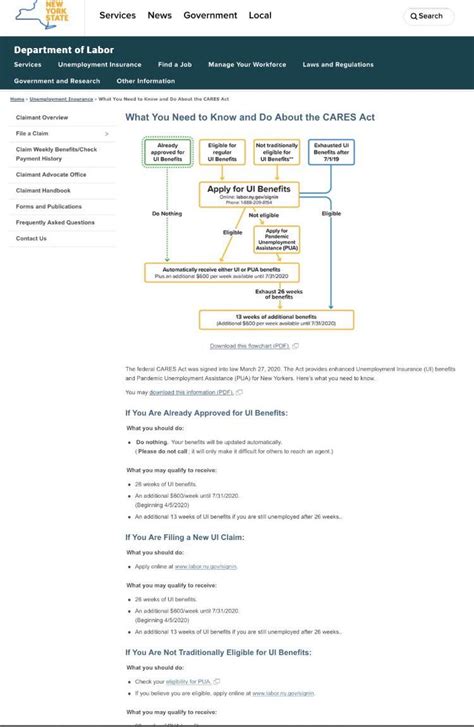Unemployment Claims: Faqs And Answers

Unemployment is a challenging time for anyone, and navigating the unemployment benefits system can be confusing. This guide will answer some of the most frequently asked questions about unemployment claims, and provide you with the information you need to successfully file a claim.
What is Unemployment Insurance?
Unemployment Insurance (UI) is a program designed to provide temporary financial assistance to workers who have lost their jobs through no fault of their own. UI is administered at the state level, and the benefits and eligibility requirements vary by state.
Who is Eligible for Unemployment Insurance?
To be eligible for UI, you must meet the following requirements:
- You must have lost your job through no fault of your own
- You must have worked a certain number of hours or earned a certain amount of wages during a specific period of time (this varies by state)
- You must be actively seeking work
- You must be able and available to work
What is Considered “No Fault of Your Own”?
You may be eligible for UI if you were laid off due to lack of work, if your employer went out of business, if you were fired for reasons other than misconduct, or if you quit for good cause (such as unsafe working conditions or a significant change in your job duties).
How Do I Apply for Unemployment Insurance?
The process for applying for UI varies by state, but generally involves the following steps:
- Visit your state’s unemployment insurance website or office
- Create an account or log in to an existing account
- File a claim for benefits
- Provide any requested documentation, such as proof of employment or income
- Attend any required appointments or phone interviews
How Much Will I Receive in Unemployment Benefits?
The amount of UI benefits you receive will depend on your earnings history and the specific rules in your state. In general, UI benefits replace a percentage of your previous earnings, up to a maximum amount set by the state.
How Long Will I Receive Unemployment Benefits?
The length of time you can receive UI benefits also varies by state, but is generally between 12 and 26 weeks. Some states may provide additional weeks of benefits during times of high unemployment.
Can I Work While Receiving Unemployment Benefits?
In most cases, you are allowed to work while receiving UI benefits, but the amount you earn may affect your eligibility for benefits. Each state has specific rules regarding how much you can earn while receiving UI benefits.
What Happens if I am Denied Unemployment Benefits?
If your claim for UI benefits is denied, you have the right to appeal the decision. The appeals process varies by state, but generally involves a hearing before an administrative law judge.
Conclusion
Unemployment can be a difficult time, but understanding the UI system can help you navigate the process with confidence. If you have any additional questions or concerns, contact your state’s unemployment insurance office for more information.
FAQs
Q: How long does it take to receive unemployment benefits?
A: The processing time for UI claims varies by state, but may take several weeks.
Q: Can I apply for UI if I am self-employed?
A: The eligibility rules for self-employed individuals vary by state, but some states may allow self-employed individuals to apply for UI benefits.
Q: Do I have to pay taxes on UI benefits?
A: Yes, UI benefits are considered taxable income and must be reported on your tax return.
Q: What happens if I move to a different state while receiving UI benefits?
A: If you move to a different state while receiving UI benefits, you must notify your state’s unemployment insurance office and may need to transfer your claim to the new state.
Q: Can I receive UI benefits if I am receiving severance pay from my former employer?
A: The rules regarding severance pay and UI benefits vary by state, but in some cases, receiving severance pay may affect your eligibility for UI benefits.
